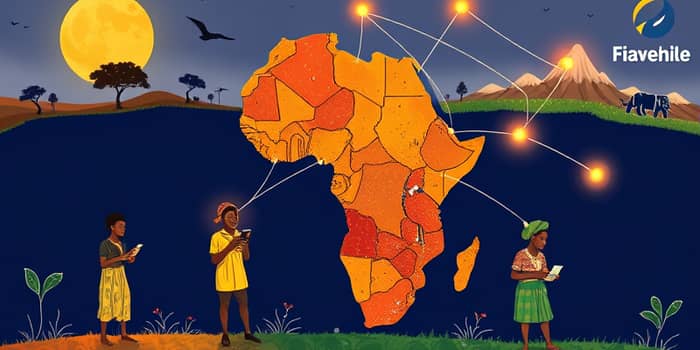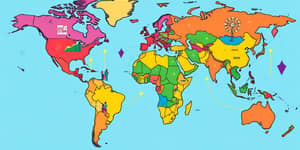
Across the African continent, an unprecedented wave of digital transformation is reshaping financial lives. From bustling cities to remote villages, mobile banking is forging pathways to opportunity and prosperity. This revolution is not only quantitative—it is a profound qualitative shift toward unprecedented access for previously unreachable communities.
In 2024, global mobile money accounts soared to 2.1 billion, with Sub-Saharan Africa (SSA) commanding 51% of that total. That region alone processed 81 billion transactions worth $1.1 trillion. These figures underscore the surging transaction volumes and values that define today’s mobile banking landscape.
East and West Africa led the charge, contributing over half of new account registrations. Kenya’s M-Pesa pioneered the movement, initially focusing on remittances and simple transfers. Nigeria’s OPay quickly followed, expanding services into micro-loans, bill payments, and merchant transactions. Together, these platforms exemplify how homegrown innovation can become a global standard.
Nearly half of Africa’s population—48%—now accesses some form of formal banking, up dramatically from two decades ago. Mobile platforms have enabled individuals with no prior exposure to financial services to leapfrog traditional hurdles. In Ghana, for example, mobile money transactions surpassed $121.8 billion in 2022, highlighting rural and urban uptake alike.
This evolution has woven mobile banking into everyday life: purchasing airtime, settling utility bills, securing micro-loans, receiving government transfers and cross-border remittances. The result is bridging the digital divide and granting millions newfound economic agency.
Innovations such as Uganda’s mobile credit scoring system and South Africa’s real-time interbank PayShap platform showcase the regulatory frameworks fostering healthy competition. When governments lowered transfer fees during the COVID-19 pandemic, adoption rates spiked, illustrating how policy can catalyze change.
Mobile money contributes tangibly to national GDPs, serving as a reliable lifeline for rural farmers, market traders and informal entrepreneurs. During economic downturns or health crises, it preserves social distancing while keeping commerce alive.
The ripple effects extend far: savings can be accumulated securely, credit histories emerge, and small businesses access collateral-free loans. This ecosystem exemplifies the transformative power of mobile finance to uplift communities.
Women still lag behind men in mobile money adoption. Meanwhile, over half of Africans remain unbanked, relying on cash for daily transactions. Addressing these barriers requires targeted education, infrastructure investment, and innovative outreach—appointments that underscore the need for expanding horizons for small businesses.
The next frontier involves deeper integration of credit, insurance, savings and cross-border payments into a unified digital wallet. Neobanks and fintech startups are poised to capture new market segments while incumbent platforms evolve their offerings.
By 2025, electronic payment revenues in Africa are projected to hit $39 billion—more than double 2020 levels. This trajectory highlights that the mobile money revolution is not a passing trend but a cornerstone of economic resilience and inclusive growth. Stakeholders across public and private sectors must collaborate to sustain momentum and ensure no one is left behind.
As Africa cements its position at the forefront of global financial innovation, the continent offers a powerful lesson: technology, when harnessed with vision and empathy, can be a true catalyst for shared prosperity.
References













